Paris nightclubs are late-night venues across the French capital that host electronic, hip-hop, and pop events with curated lineups, pro sound systems, and door policies shaped by neighborhood culture.
Key Points
- Techno, hard groove, and trance are booming, while amapiano and Afro-house bring feel-good energy to dance floors.
- Hot rooms now: Bastille and Pigalle basements, riverside and open-air spots in the 19th and 13th, and a few high-design spaces near Palais de Tokyo.
- Presale tickets sell out fast for headline nights; plan one week ahead for smooth entry and better prices.
- Expect inclusive, camera-low vibes, great sound (Funktion-One, d&b), and long sets that peak after 1:30 a.m.
- Typical spend: entry €12-€25, beer €7-€9, cocktails €12-€16, cloakroom €2-€4.
Direct Answer
Right now, Paris is leaning into fast, rolling techno and euphoric trance, with soulful house and amapiano holding their own in friendlier rooms. For the most reliable nights, look to Bastille’s Badaboum, Pigalle’s La Machine du Moulin Rouge, the timeless Rex Club on Grands Boulevards, elegant parties at Phantom (Palais de Tokyo), and summer-thru-early-fall runs at riverside and outdoor spaces like the 19th. Queer-led collectives keep the weekend electric, and presale tickets are the smartest move for big lineups.
Comprehensive Guide to What’s Hot in Clubs in Paris Now
You’re spoiled for choice this year. The city finally found its groove again: faster BPMs, tighter bookings, and a mood that’s more inclusive than ever. You’ll hear hard-groove techno slamming in basements, silky house on wood-floored dance floors, and amapiano rolling over sunlit terraces. Festivals and fashion weeks plug into afterparties, so a random Thursday can turn into a five-hour memory.
Rex Club is a historic Paris nightclub (opened 1992) known for techno and house, a low-ceiling dance floor, and audiophile sound on Boulevard Poissonnière; it’s a fixture for international DJs and local labels.
La Machine du Moulin Rouge is a multi-room club in Pigalle with a main hall, balcony, and the basement space “La Chaufferie,” programming techno, disco, house, and live-electronic shows.
Definition and Context
Paris Nightclub Scene is the ecosystem of late-night venues, promoters, and collectives operating across Pigalle, Bastille, the 10th, 11th, 13th, 18th, and 19th arrondissements, with events typically running Friday-Sunday, midnight to 6 a.m. or later.
2025 context in a nutshell: bookings are strong, camera policies are softer (often stickers over lenses), and the sound systems feel purposely tuned for long, rolling sets rather than quick radio hits. Neighborhoods shape nights: Pigalle is rowdy but stylish, Bastille is mixed and social, the 19th hosts bigger open-air or hybrid venues, and the 13th leans soulful house and Afro-house. Metro lines run late on weekends and Noctilien buses cover the after-hours run home.
Funktion-One is a British sound system brand known for high-clarity mids and punchy low end; many Paris clubs use it or comparable d&b audiotechnik rigs to deliver club-grade dynamics.
Benefits of Going Out in Paris Now
- Serious music curation: Residents warm the room, headliners stretch out. You get narratives, not playlists.
- Inclusive dance floors: Queer-led parties and safer spaces mean more freedom to be yourself.
- Great value: Compared to other capitals, door prices and drinks are still sane for the quality you get.
- Neighborhood variety: From Belleville basements to riverside hangouts, there’s a flavor for every mood.
- Year-round rhythm: Indoor rooms in winter; terraces, gardens, and riverside decks in warmer months.
Types of Paris Clubs and Where to Feel the Heat
Want dependable energy? Go where the programming is tight and the room fits the sound. Here’s how the hotspots stack up this year.
Badaboum is a Bastille club with a main room, side spaces, and a reputation for house, techno, and indie-electronic lineups, combining live shows and DJ-centric nights.
Why it’s hot now: residents warm the floor, and the booth sits close to the crowd. Expect lively Fridays and Saturdays, a mixed, social dance floor, and bookings that swing from disco edits to jacking techno.
Phantom is a sleek club beneath the Palais de Tokyo, known for design-forward lighting and curated electronic programming that leans elevated rather than commercial.
Why it’s hot now: fashion-leaning crowd, careful bookings, and polished production. Think candle-lit pregame upstairs, sub-heavy theatrics downstairs.
Djoon is a 13th arrondissement club often called the “Temple of Soulful House,” programming soulful, Afro-house, and deep house with a warm, community feel.
Why it’s hot now: amapiano and Afro-house are having a moment, and Djoon treats both with respect-long blends, sunshine energy even at 3 a.m.
La Station - Gare des Mines is a former rail outpost in the 18th turned experimental venue, mixing live, left-field electronics, and DIY club culture with seasonal outdoor stages.
Why it’s hot now: adventurous bookings in a raw space-great for discovering new collectives and late-summer open-air sessions.
Cabaret Sauvage is a circular venue in Parc de la Villette hosting live shows and all-night club events across genres, from techno to global bass.
Why it’s hot now: diverse programming and space for big, ecstatic crowds without losing the magic of a proper club night.
Kilomètre25 is an outdoor clubbing space under the Périphérique in the 19th, active during warmer months, known for day-into-night events and multi-genre takeovers.
Why it’s hot now: Paris does open-air better than people expect; KM25 is where you chase that golden-hour groove that rolls into night.
Possession is a Paris-born queer techno collective and party brand known for high-intensity bookings, inclusive door policies, and long-format raves across various venues.
Why it’s hot now: hard, fast, joyful, and safer-space oriented. If you came for peak energy and community, this is where it crystallizes.
How to Find Hot Parties in Paris
- Check listings: Resident Advisor and club Instagram pages post lineups early; set alerts for your favorite labels and collectives.
- Book in advance: Presales are cheaper (€12-€18) and skip the worst of the queues. Door can jump to €20-€25+ on headline nights.
- Follow locals: Watch promoters like queer collectives and long-running crews (think La Mamie’s or house-forward labels) for word-of-mouth gems.
- Watch the calendar: Paris Fashion Week (September/October and January/March) means surprise afterparties. Techno Parade hits each September. Summer weekends swell with terrace events.
- Zero in by neighborhood: Pigalle for multi-room chaos, Bastille for mixed lineups, the 19th for open-air energy, the 13th for soulful rhythms.
Authoritative touchpoints: RATP for late-night transport updates, Paris Police Prefecture for ID and safety guidance, and Technopol for Techno Parade info.
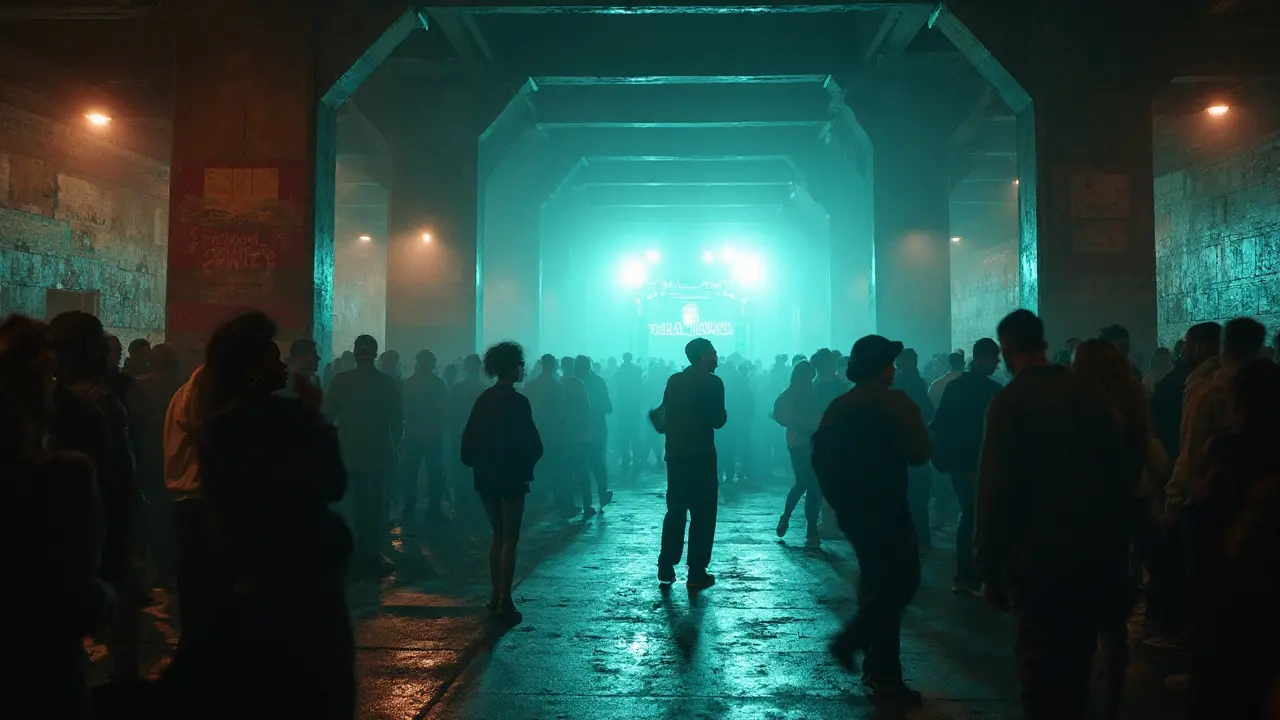
What to Expect During a Night Out
- Timing: Most rooms warm up around midnight, peak from 1:30-4:30 a.m., and taper by sunrise. Sundays can surprise you with matinees or day parties.
- Door: Security checks bags and IDs (carry a physical ID). Calm confidence, not performative cool, usually works best.
- Inside: Cloakroom is standard and worth it; you’ll dance lighter. Camera stickers or “no-flash” vibes are common-live in the moment.
- Sound & light: Expect tuned systems, balanced mids, and lighting that builds with the set rather than strobing nonstop.
- Crowd: Mixed language, friendly, and usually respectful of space. You’ll hear English, French, Spanish, and more on any given night.
Pricing and Booking
- Tickets: Presale €12-€18; door €20-€25+ for big names; midweek and early arrivals can dip under €10 at some venues.
- Drinks: Beer €7-€9; wine €6-€9; cocktails €12-€16; water is free from taps at many bars if you ask.
- Cloakroom: €2-€4 per item; card payments are common; some venues go fully cashless.
- Hours: Clubs typically close around 5-7 a.m., but check each venue-special events may run longer.
- Age & ID: 18+ with government photo ID; photocopies often refused.
Safety Tips
- Plan your route: Last metro is around 1:15 a.m. on weekdays, later on weekends; Noctilien buses and rideshares cover the rest.
- Protect your stuff: Keep your phone zipped away; Paris is safe-ish at night, but pickpockets exist.
- Pace yourself: Long-format nights win on consistency. Alternate drinks with water, take fresh-air breaks.
- Respect the room: Ask before filming; follow the dress code (no open-toe sandals, no obvious sportswear where noted).
- Buddy system: If you meet new friends, share a live location or regroup point. Venue staff are helpful-use them if something feels off.
Comparison Table: Paris Clubs vs Open-Air Venues
| Feature | Indoor Nightclubs | Open-Air Venues |
|---|---|---|
| Seasonality | Year-round | Spring-early autumn (weather-dependent) |
| Sound | Controlled acoustics, heavier low end | Airier, wider stage feel; bass spill varies |
| Door Policy | Stricter on peak nights; ID essential | Often looser, but bag checks remain |
| Peak Time | 1:30-4:30 a.m. | Golden hour to midnight, depending on curfew |
| Vibe | Dark, immersive, laser-led | Social, scenic, sunset-driven |
| Cost | €12-€25 entry; drink prices vary | €10-€20 entry; cocktails trend lighter |
Related Concepts and Connected Topics
- Festivals: Peacock Society (summer, Parc Floral), Marvellous Island (late spring, Torcy), We Love Green (multi-genre with big dance tents).
- City moments: Techno Parade in September turns the city into a moving party; Fashion Week means surprise afters around the Seine.
- Alternative nights: Live-electronic hybrids at Cabaret Sauvage, underground weeklies at La Station, and label takeovers in Pigalle basements.
- Warm-up spots: Wine bars in the 11th, canal-side terraces near La Villette, and galleries hosting listening sessions before proper clubbing.
Next Steps
- Pick your vibe: industrial techno at Rex, multi-genre Pigalle madness at La Machine, or soulful house at Djoon.
- Lock presales by Wednesday: aim for earlier slots if you like room to dance, later slots if you love the peak.
- Plan your exit: last metro or Noctilien; stash cloakroom cash/card; save a rideshare address preset.
- Travel light: ID, card, portable charger, and earplugs. Everything else is noise.
Frequently Asked Questions
What music is trending in Paris clubs right now?
Fast, rolling techno and trance are having a big year, with hard groove taking plenty of headline slots. Amapiano and Afro-house are thriving in friendlier rooms like Djoon. House, disco edits, and bass-driven shapes still feature on multi-genre nights, especially in Pigalle and Bastille.
Do I need to buy tickets in advance for Paris clubs?
For bigger lineups, yes. Presales are cheaper and reduce queue stress. Smaller weekdays or early slots can be fine at the door, but Fridays and Saturdays for marquee names will often sell out or hike door prices. Aim to buy by midweek.
What’s the typical dress code in Paris nightclubs?
Style over flash. Avoid beachwear, open-toe sandals, and heavy sportswear. Black, clean sneakers or boots, and a minimal look rarely miss. Some venues lean artsy or fashion-forward (especially near Palais de Tokyo), but comfort plus intention is the quiet code everywhere.
How late do Paris clubs stay open?
Most Friday and Saturday nights run until 5-7 a.m. Some Sunday day parties and seasonal open-air events end earlier due to local rules. Always check the listing-special events and holiday weekends can shift closing times.
Is it safe to go out clubbing in Paris?
Yes, with basic street smarts. Keep valuables zipped, stick to lit routes, and use the cloakroom. Staff and security are approachable-ask for help if you feel uncomfortable. Night buses and rideshares cover late returns when the metro is closed.
Which neighborhoods are best for clubbing in 2025?
Pigalle (multi-room chaos, basement fun), Bastille (mixed and social), Grands Boulevards (heritage tech-house with Rex), the 13th (soulful and Afro-house), and the 19th (open-air and large venues). Belleville adds left-field late nights and intimate bars.
Can I take photos or videos inside Paris clubs?
Many clubs allow discreet photos but discourage flash and constant filming. Some hand out camera stickers or enforce low-phone vibes to protect the dance floor. When in doubt, ask staff or watch what regulars do.
What’s the budget for a full night out?
If you buy presale tickets, plan €12-€18 for entry, €20-€30 for two drinks, and €2-€4 for cloakroom-roughly €35-€50 for a steady night. Add a rideshare home if you miss the night bus or metro reopen.
Are there good Sunday or early-evening options?
Yes. Day parties and early sessions pop up in warmer months (especially in the 19th), and some venues run Sunday programming. Watch for terrace events, label takeovers, and special one-offs around holidays.

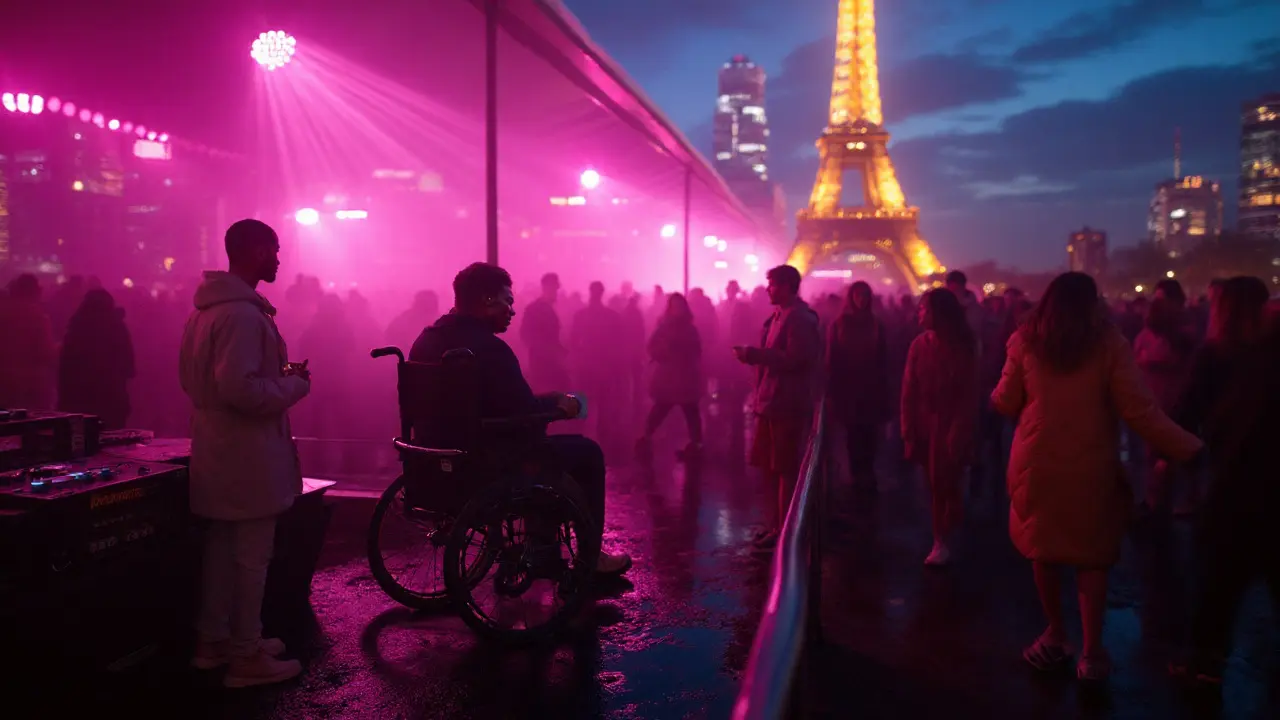
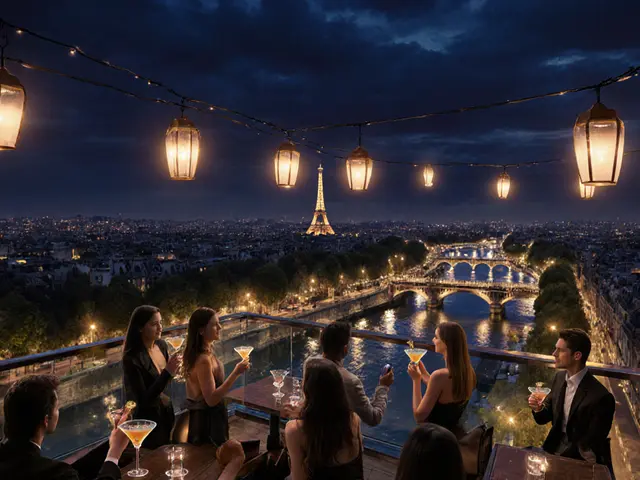

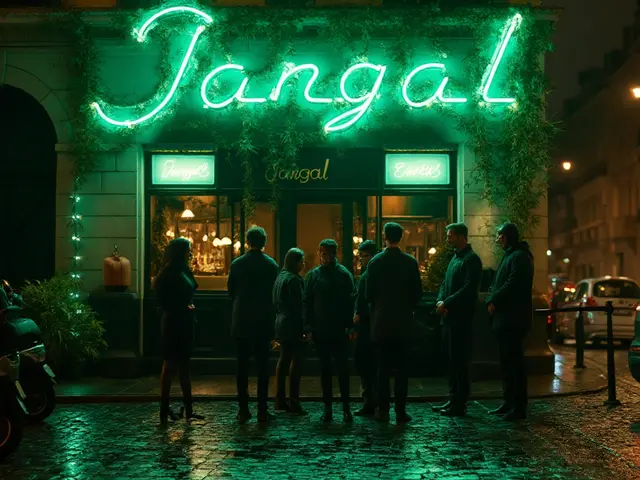

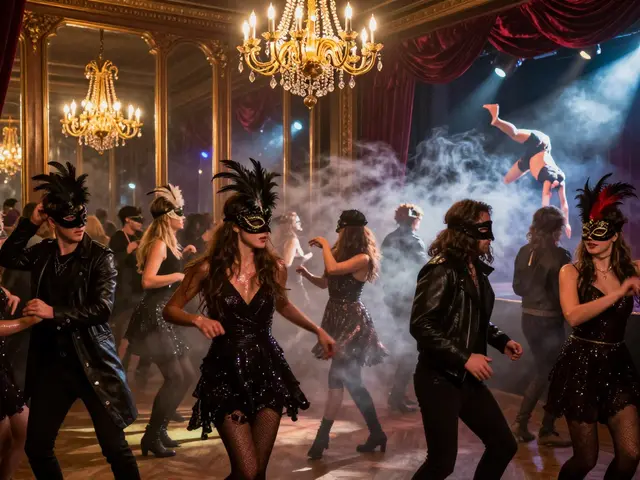
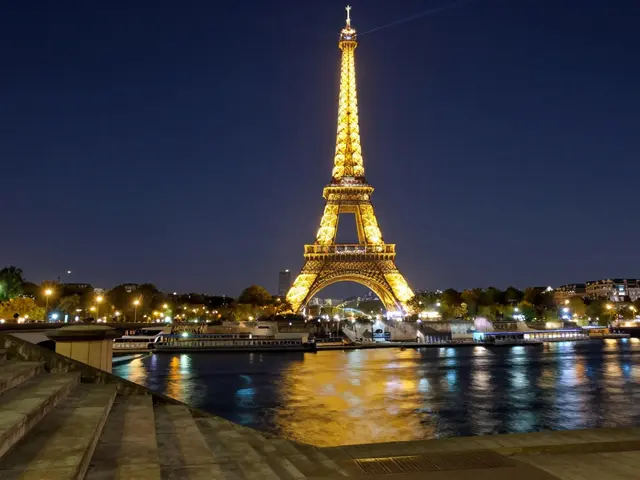
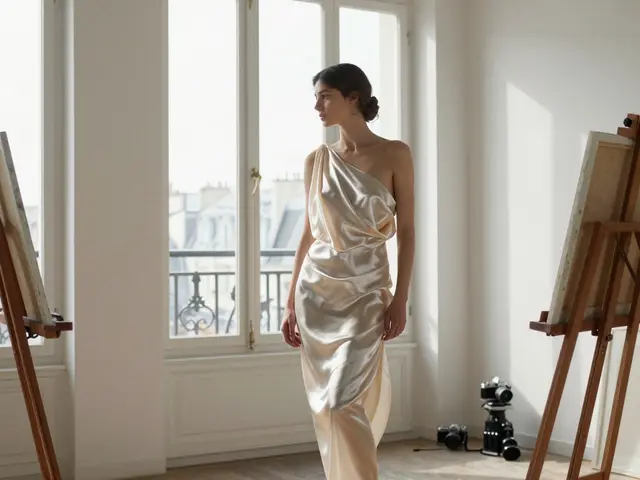
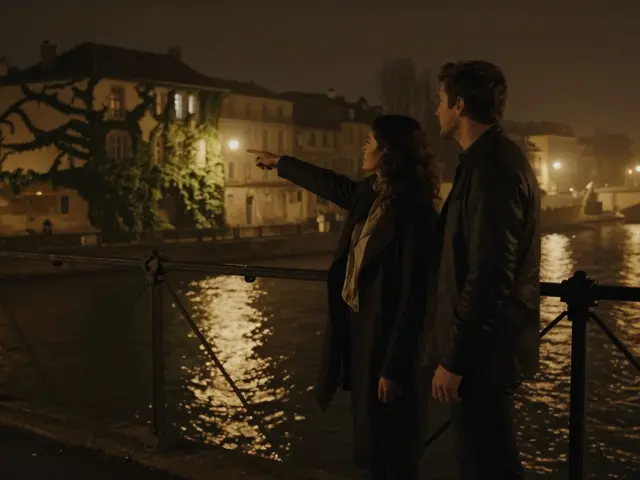
Lynn Ma
September 22, 2025 AT 13:52Picture this: stepping out onto the cobblestones of Bastille, the neon signs flickering like restless fireflies, and the bass from Badaboum thudding through the alleys as if the city itself were a giant synth. The crowd is a kaleidoscope of denim jackets, glittery sneakers, and people who look like they’ve just stepped out of a music video. You can feel the pulse of the room sync with your heartbeat, and the smell of cheap perfume mixes with the metallic tang of the bar’s signature cocktail. It’s the sort of night that makes you forget you’ve got a 9‑to‑5 job waiting for you tomorrow. Every corner of that venue feels curated, from the low‑light LED walls to the vintage vinyl posters that scream nostalgia while the DJ drops cutting‑edge tracks. It’s a micro‑cosmos where the old and new collide, and you leave feeling both exhausted and oddly rejuvenated. The vibe is inclusive, no‑flash cameras, just pure, unfiltered dancing. And that, my friends, is why Paris nightclubs are the beating heart of the city’s creative soul.
Jess Felty
September 30, 2025 AT 13:52They’re probably tracking every bass drop with hidden microphones, just saying.
Kathy ROBLIN
October 8, 2025 AT 13:52My heart raced like a synth arpeggio the first time I stepped into Badaboum, and the lights cutting across the foggy room felt like a laser show on a rainy night. The crowd’s energy was a living organism, each gasp and cheer feeding the next beat. I swear the DJ’s set built a narrative so dramatic it could have starred in its own film. By the time the night rolled into the early hours, I was drenched in sweat and pure euphoria, as if the universe had aligned just for that moment. It’s a memory that still echoes whenever I hear a similar drop.
LeeAnne Brandt
October 16, 2025 AT 13:52Totally vibing with the scene, especially when the lights dim just right 😊
It’s like the whole city pauses for a second and lets the music speak for itself.
siva kumar
October 24, 2025 AT 13:52When you think about Parisian nightlife, you have to remember that the city’s club culture is woven into a history that stretches back to the salons of the 19th century. Back then, the avant‑garde gathered in cramped basements to hear the first whispers of electronic experimentation, and that rebellious spirit still fuels today’s underground. Modern venues like Rex Club and La Machine du Moulin Rouge inherit that legacy by treating the dance floor as a communal ritual rather than a commercial showcase. In fact, the sound engineering choices-Funktion‑One, d&b, even bespoke line arrays-are deliberately chosen to preserve the nuance of each bass note, so you feel the music in your bones. If you arrive early, you’ll notice the careful curation of the door policy, which isn’t about exclusion but about protecting that intimate energy from being diluted by indiscriminate crowds. The dress code, while relaxed, still whispers a respect for the space: clean sneakers or boots, a dark palette, and an avoidance of beachwear that would clash with the club’s aesthetic. Once inside, the lighting design-soft LEDs paired with kinetic projections-acts as a visual metronome, guiding the flow of the crowd without overwhelming the senses. You’ll also find that many clubs now adopt a “camera‑low” policy, offering stickers instead of outright bans, which encourages dancers to stay present rather than record everything for Instagram. A quick tip: keep a bottle of water handy and sip between sets; the high‑energy productions can be draining, and hydration keeps you dancing longer. Don’t forget the cloakroom; the €2‑€4 fee is a small price to pay for the peace of mind that your jacket isn’t getting squashed in a sweaty pit. For those who love a splash of cultural flavor, the 13th arrondissement’s Djoon blends soulful house with Afro‑house rhythms, creating a warm, community‑centric vibe that feels like a living playlist. Meanwhile, the open‑air spaces in the 19th, like Kilomètre25, let the city’s ambient sounds sneak in, giving a unique synergy between urban noise and the thumping bass. If you’re planning to attend an after‑party during Fashion Week, be prepared for pop‑up locations that may only be announced on a private Discord channel, adding an element of exclusivity that only true insiders get to experience. Lastly, always map your exit strategy: the last metro runs around 1:15 a.m. on weekdays, but the Noctilien night buses keep the veins of the city alive till sunrise, so you never have to wander in the dark. In short, treat each night out as an immersive cultural lesson, and you’ll leave Paris not just with memories of a good beat, but with a deeper appreciation for the city’s relentless dedication to the art of the night.
satish gottikere shivaraju
November 1, 2025 AT 12:52I’ve been to a few of these spots and each time it feels like the city hands you a passport to a new universe of sound 🌟. The vibe shifts from intimate basement funk to massive open‑air festivals, and every night is a fresh adventure. If you stay curious and grab a presale ticket, you’ll never miss the hidden gems that keep the scene alive.
Abraham Pisico
November 9, 2025 AT 12:52Oh sure, because nothing says ‘cultural immersion’ like dancing until your shoes melt, right? Let’s just remember to hydrate and not become a human neon sign.
Tarapada Jana
November 17, 2025 AT 12:52One must question whether the commodification of techno in tourist‑laden basements truly honors the genre’s underground origins.
Lippard Babette
November 25, 2025 AT 12:52Thanks for the thorough guide; I’m definitely penciling in Badaboum for my next trip and will spread the word to my crew.
Srimon Meka
December 3, 2025 AT 12:52Listen, if you want to survive a marathon set at Kilomètre25, you need stamina training-run a few miles, practice breath control, and never underestimate the power of a solid pre‑game snack.